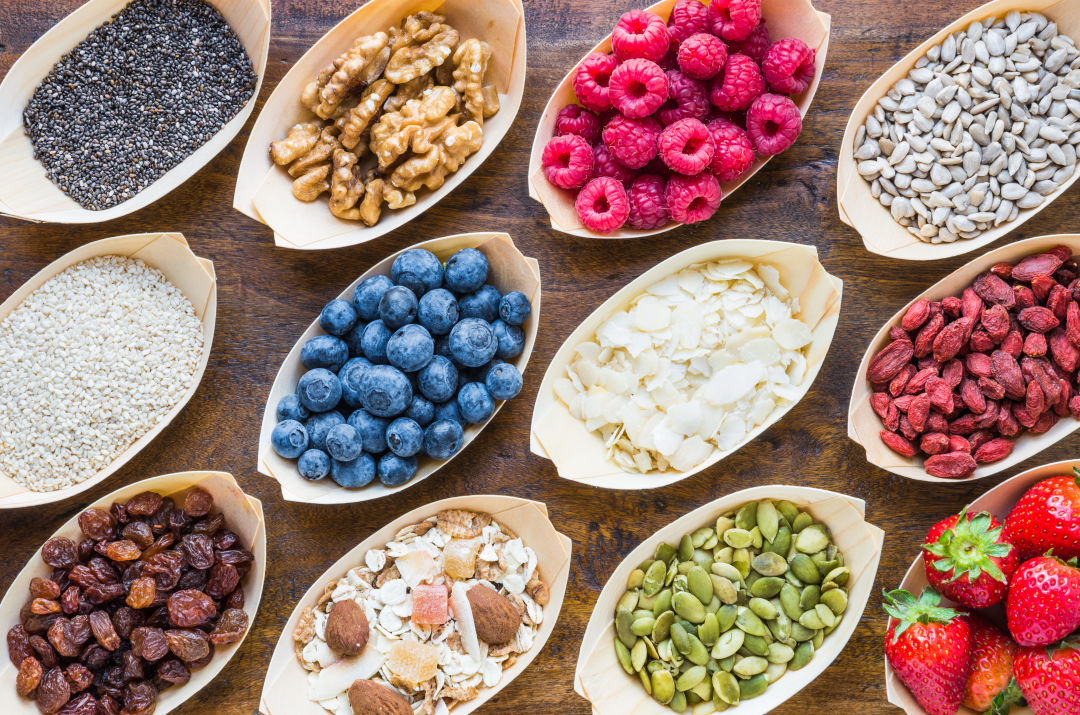Are Superfoods Really Super?

Image: Shutterstock
Superfoods are everywhere and can be found on menus and in stores all over Sarasota. From First Watch’s kale tonic and Power Breakfast quinoa bowl to SunniBunni’s line of DetoxBunni smoothies, healthy eating seems to be on-trend.
However, while certain buzzword foods like acai, turmeric, and kale might entice a healthy eater, they don’t always denote a healthful product.
Many experts say that sensationalized ‘superfoods’ are not the key to a healthy diet. In fact, superfood is not a word that is used by experts.
“’Superfood’ is not a scientifically based term,” says Julie Calmes, a registered dietitian at Sarasota Memorial Hospital. “You read about it in the news and on labels, but dietitians and researchers don’t use that word. It’s a marketing technique.”
While foods like chia seeds and avocado are good for you, consumers should be aware of the pitfalls of products that claim to be healthy, but really contain lots of added sugar.
According to Calmes, many products that claim to utilize superfoods are actually no better than processed foods. “The problem with the superfood trend is that many of them don’t naturally taste very sweet,” she explains. “In order to appeal to consumers, sugar is often added to make it taste better.”
Added sugars are often found in smoothies and juices, where it's easy to incorporate additional sweeteners. While retailers like Trader Joe’s and Whole Foods list the fruits and veggies that are in each bottle of cold-pressed juice on the bottle itself, you’re not always getting the health benefits you pay for.
When produce goes through the juicing process, natural fiber and skins are often lost. This cuts down on nutritional value, and the lack of fiber means the juice or smoothie won’t fill you up as much as eating the actual fruit or vegetable.
Calmes says the key to eating healthy is not overloading on certain items over others, but instead consuming a variety of foods.
“When people hear ‘superfood’ or ‘healthy’, they think they can have unlimited quantities of these things," she says. "A truly healthy diet should include real, whole foods that have nutritional value and aren’t processed."
Similarly, a healthy lifestyle is about more than simply eating healthy. To achieve your health and wellness goals, Calmes also recommends that her clients exercise, get adequate sleep and engage in supportive relationships.
So, go ahead and have a green juice with your avocado toast. Just treat superfoods in the same way you would any other food group; something to be balanced and eaten in moderation.



